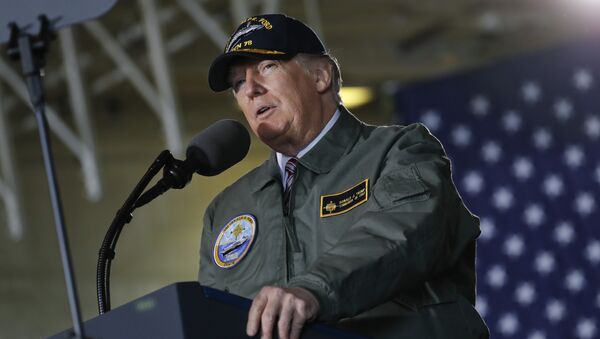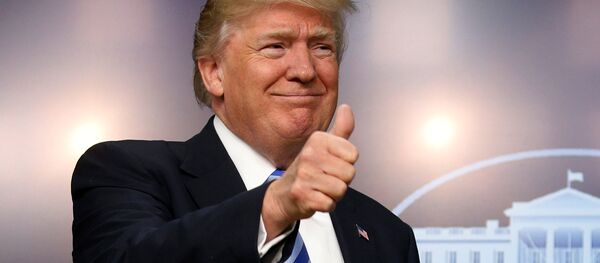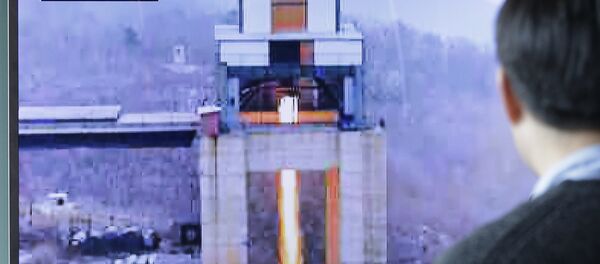Tillerson added that the JCPOA ignored all other serious threats from Iran.
He also accused Tehran of sponsoring terrorism, cyberattacks and human rights violations.
Earlier, White House Press Secretary Sean Spicer said that President Donald Trump had ordered a 90-day period to evaluate Iran’s compliance with the nuclear deal.
On July 14 2015, Iran and six international mediators reached a historic agreement on the settlement of the long-term Iranian nuclear problem. The JCPOA was adopted, the implementation of which removes the economic and financial sanctions previously imposed by the UN Security Council, the US and the European Union from Iran. The plan came into effect on January 16, 2016.
According to Dmitry Solonnikov, director of the Institute for Modern State Development, this new surge in anti-Iranian sentiment in Washington is related to US support for its allies in the Middle East.
"In this situation, Trump first tries to make good on his promises before, first of all, Israel and Saudi Arabia. Trump’s criticism is focused on Tehran’s policy towards these two countries, particularly Iran’s actions in Libya and Yemen. Washington regards the threats coming from Libya and Yemen to Israel and Saudi Arabia as strategic," Solonnikov said in an interview with Radio Sputnik.
What is more, according to the expert, Iran is on the verge of a presidential election and Washington is teetering on the edge.
According to an article in the Russian online newspaper Vzglyad, this not new, taking into account Trump’s longstanding criticism of Tehran and the nuclear deal, but the situation for the US presidential administration is “getting increasingly ambiguous.”
Experts cite different reasons behind Trump becoming increasingly active in foreign policy, ranging from an attempt to decrease anti-Trump sentiment after his electoral campaign to the intention to strengthen Washington’s positions in relations with key powers.
Commenting on the US missile strike in Syria and Washington’s recent threats against North Korea, the author noted that in both cases Trump and his team managed certain tactical goals, in particular, mounting pressure over China.
At the same time, those actions will damage Washington’s reputation in the long run.
"In Syria, the US once again proved that its military is the strongest in the world. But the actual results of the strike were insignificant as the targeted airbase was not seriously damaged and resumed operations a day after. As for North Korea, despite the threats and the deployment of an aircraft carrier group to the Korean Peninsula, Pyongyang has not change its rhetoric. Moreover, political moves by the US on Syria and North Korea were blocked by Russia in the UN Security Council," the article read.
After Syria and North Korea, the US began to fuel tensions with Iran. However, Tehran is unlikely to bow under the pressure and, what is more, can always count on political support from Moscow.
"As a result, we have recently seen three cases of military and political escalation, but none of these cases were successful in terms of the goals the US wanted to achieve. This situation reflects a longstanding global trend of drifting away from a unipolar world order," the author wrote.





